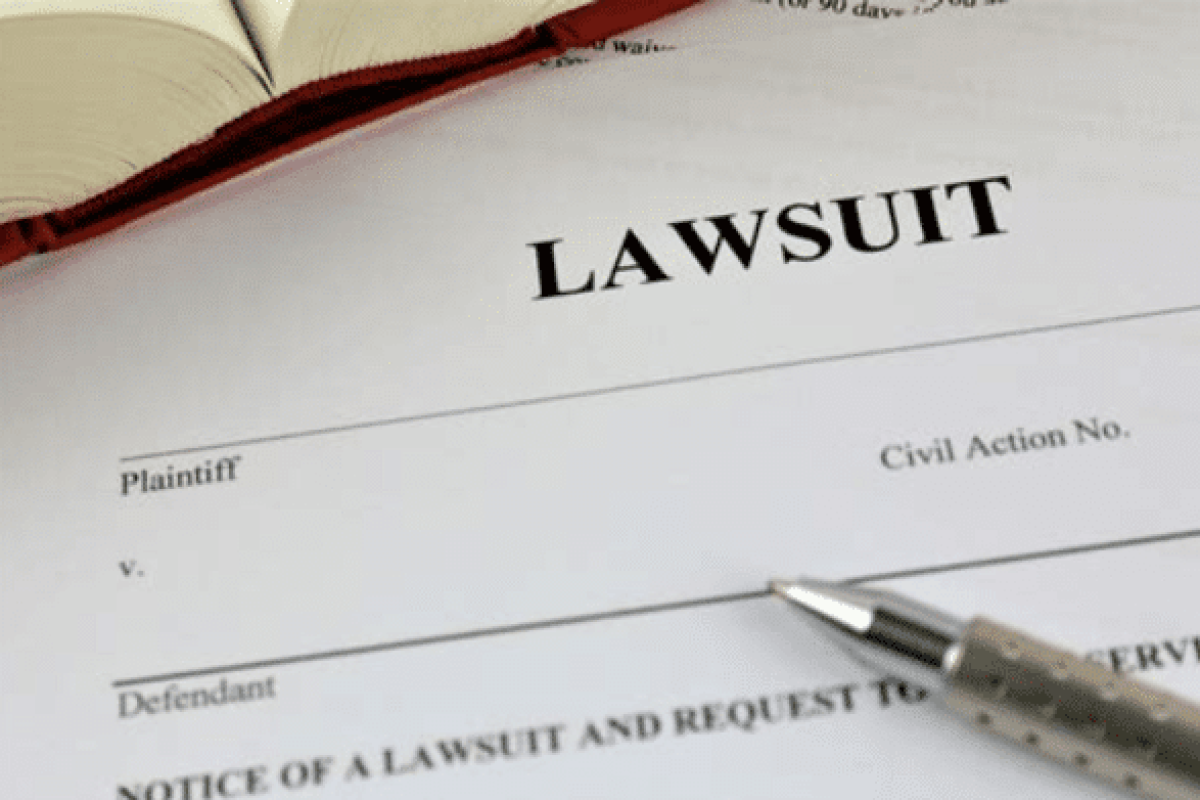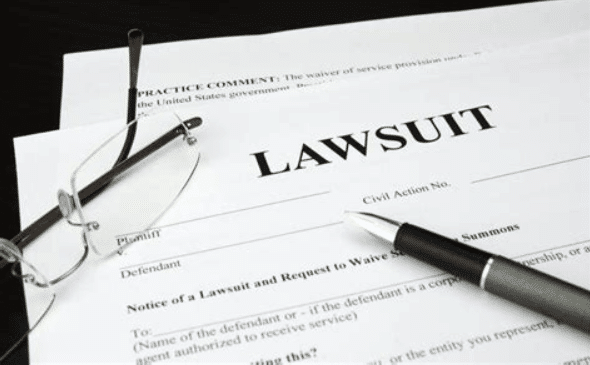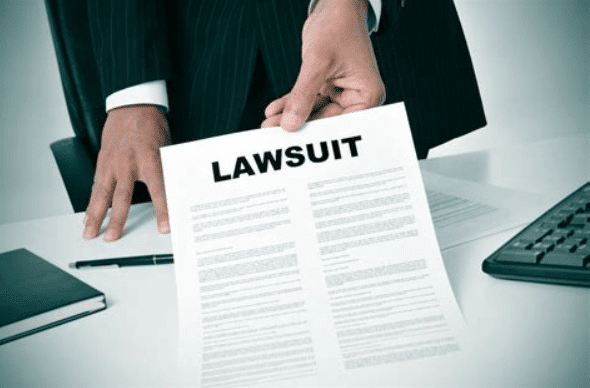Vermont’s Judiciary Public Portal can give you access to your court case records online. Below is the ZumaZip.com guide to the Vermont court system, how to search for your court case there, and how to respond to a debt lawsuit.
Vermont courts provide an online portal for finding your court case.
If you’ve been sued for a debt, it’s crucial to keep tabs on your case. Frequently, collectors don’t properly serve defendants with the case documents. So, finding your case online is helpful for reviewing the progress of your case.
You can look up your case on the Vermont Judiciary Public Portal.
Finding your case isn’t always easy, so in this article we’ll show you what you need to know about searching for your court case in Vermont. But first, let’s explore how Vermont’s court system works.
Understand the Vermont court system
In order to find your case information online or in person, it’s important to understand how the civil courts are structured in Vermont. When you know what courts have jurisdiction over certain types of cases, it will be easier for you to narrow down the court to which your case is assigned. In Vermont, there are two levels of courts that deal with civil cases:
- The Supreme Court: This is the highest level of the judicial branch in the state of Vermont. When someone appeals the outcome of a civil case in the Superior Court, the case is passed on to the jurisdiction of the Supreme Court.
- The Superior Court: In Vermont, all civil cases are initiated in the Superior Court. This means that all debt collection lawsuits begin at the Superior Court level. If a lawsuit involves $5,000 or less, it is considered a Small Claims case.
What divisions make up Vermont’s Superior Court?
Each of Vermont’s 14 counties has a Superior Court unit. The court considers cases involving both criminal and civil matters. It is also the Superior Court’s job to allocate judges to cases in their districts and among the Superior Court’s several divisions. The bulk of cases managed by the Superior Court are heard by a jury, while the districts dispersed around the Superior Court use diverse methods of hearing and judging cases.
Below is a brief explanation of the different divisions within the Superior Court and the types of cases they handle:
- Division of Civil Procedure: The Superior Court’s civil division has relatively limited jurisdiction and handles primarily civil and small claims disputes.
- Division of Criminal Justice: Criminal proceedings are heard in the Superior Courts across Vermont’s 14 counties. This division has authority over all criminal matters in the state and issues warrants for searches and arrests. Each criminal case is assigned to a judge by the court. The criminal division has the authority to consider appeals from cases handled by the judicial bureau and, if necessary, to overturn verdicts.
- Family Separation: Every county has a family division, which has authority over matters involving marital troubles, minors, and child support. This division does not conduct jury trials most of the time, instead hearing only from the parties involved and their counsel.
- Division of Probate: The Superior Courts’ probate division has authority over estates, wills, and birth and death certificates. The Judicial Bureau exclusively handles civil matters only. Most of the crimes heard here are minor, and state or municipal law enforcement authorities typically impose them.
- Division of the Environment: The Superior Court’s environmental division is the only one that does not exist in all 14 counties in the state. There is, instead, just one central functioning point where two judges are assigned. These two judges travel around the state, hearing matters involving municipal and state land use. This court may also hear land use issues and enforcement petitions throughout the state. Most matters in this court are between parties and their counsel, with a judge finally determining.
Like we mentioned before, if you are involved in a debt collection lawsuit, your case will fall under the Division of Civil Procedure.
How are case numbers assigned in Vermont
Cases that start, or are transferred to a district are assigned a case number by the clerk when it is filed. Civil, criminal, magistrate and miscellaneous cases are each given a separate sequence. Civil cases all start with the letters CV and the last two digits of the case number is the year the case was opened.
Find your court documents online in Vermont
Visit the Vermont Judiciary Public Portal to find court documents online. This is a free tool that gives you access to all the actions that have taken place in a case, as well as the documents filed into civil cases and any future hearings scheduled. If the records are public, anybody with access to the internet may access them. Debt lawsuits are considered public records, so you should be able to find your debt case online easily.
In order to find your court documents online, you will need to enter the following information in the search bar:
- Case number: Also known as the record number or docket number, the case number is usually the fastest and easiest way to locate your case online. All civil cases are assigned a case number, and that number usually appears on the Summons document when you are notified of the lawsuit.
- Party names: If you don’t know your case number, you can try searching for your case by entering your last and first name (or the name of the person listed on the case).
- Advanced search options: The Vermont Judiciary Public Portal lets you advance your search to narrow down the results. Click on the advanced search options, which will allow you to enter additional information into the search such as the court location of the case, the filing date, and the case type.
Most of Vermont’s court documents are now open to the public, including docket records (summary of your specific court proceedings). However, some are still sealed. Those that are sealed either deal with sensitive material or a juvenile guilty of a crime, both of which are inaccessible to the general public.
Check the status of your court case in person
If you can’t find your court document online, another option is to go to the court where the matter was heard and ask them to make copies for you. If you decide to visit the courthouse, make sure you arrive with the information needed for a court clerk to search your case: case number, party names, etc. There may be a fee involved for copying the documents. Use the following link to find the court location in your county.
If you don’t have time to make the trip to the courthouse, you can also try calling the court clerk to have them look up the status of your case over the phone.
What are Vermont’s Federal District Courts?
Vermont’s Federal Court is the United States District Court for the District of Vermont. It has authority across the state and over any civil and criminal proceedings that violate federal law.
In addition, the state has a bankruptcy court that handles all matters involving federal bankruptcy offenses. The United States Court of Appeals for the Second Circuit hears appeals from both federal courts.
If you are being sued for a debt in Vermont, chances are the case will not be on the federal level but rather the state. However, it’s still helpful to know how to navigate federal cases online.
Search your federal court case with third-party tools
When you enter keywords like “find my lawsuit in Vermont” on Google, ads and privately run tools appear as the top results. Government-owned search tools do not appear first because no one pays for them. The charges per document you access may be significantly high, so confirm that you can afford to pay. Remember, you don’t have to pay for records that you can otherwise access for free.
PACER is a third-party vendor providing public access to federal court records from around the country—all online. While it involves a fee, it also offers innovative ways to search if you miss important information about your court case.
Respond to a debt lawsuit in Vermont
If you’ve been sued for a debt you owe, ZumaZip.com can help you respond in minutes. The first step to winning your debt collection lawsuit in Vermont is to respond to the case with a written Answer. In Vermont, you have 21 days to respond before you lose by default (30 days if the case is in Small Claims). When you lose by default, the debt collector can garnish your wages or put liens on your property.
To learn more about how to Answer a debt lawsuit
You can find out if someone is suing you, keep up with the status of the lawsuit, or find any orders and judgments in a case, often without leaving your home. Knowing the status of any debt collection lawsuit is crucial. After you respond to the Summons, make sure to follow up on the court case using the Vermont Judicial Public Portal.
What is ZumaZip?
ZumaZip is a convenient solution designed to streamline your response to a debt collection lawsuit. Here’s a breakdown of what you can expect when you use ZumaZip:
Firstly, you’ll access our user-friendly web application, which guides you through the process step by step. You’ll be prompted to answer a series of questions related to your specific situation. Once you’ve completed the questionnaire, you have the option to either print out the finalized forms and mail them to the appropriate courts yourself, or you can opt to utilize ZumaZip’s services to file them on your behalf. Additionally, if you choose this option, an attorney will review your document for added peace of mind.
If you’re seeking guidance on how to effectively respond to a debt collection lawsuit, ZumaZip can provide the assistance you need. Feel free to explore our FAQs for more information on what ZumaZip has to offer.
What if I haven’t been sued yet?
If you’ve only received a collections notice, but not a lawsuit, the best way to respond is with a Debt Validation Letter. When a debt collector contacts you in any way, whether it’s by phone or mail, you can respond by formally requesting a debt validation with a Debt Validation Letter . This letter notifies the collector that you dispute the debt and forces them to provide proof you owe the debt. They can’t call you or continue collecting until they provide validation of the debt. This flowchart shows how you can use a Debt Validation Letter to win.
Get started with a Debt Validation Letter here.
How to Answer a Summons for debt collection in all 50 states
Here’s a list of guides on how to respond to a debt collection lawsuit in each state:
- Alabama
- Alaska
- Arizona
- Arkansas
- California
- Colorado
- Connecticut
- Delaware
- Florida
- Georgia
- Hawaii
- Idaho
- Illinois
- Indiana
- Iowa
- Kansas
- Kentucky
- Louisiana
- Maine
- Maryland
- Massachusetts
- Michigan
- Minnesota
- Mississippi
- Missouri
- Montana
- Nebraska
- Nevada
- New Hampshire
- New Jersey
- New Mexico
- New York
- North Carolina
- North Dakota
- Ohio
- Oklahoma
- Oregon
- Pennsylvania
- Rhode Island
- South Carolina
- South Dakota
- Tennessee
- Texas
- Utah
- Vermont; Vermont (Small Claims court)
- Virginia
- Washington
- West Virginia
- Wisconsin
- Wyoming
Guides on how to beat every debt collector
Hey there! Facing off against a debt collector can feel like a daunting challenge, but fear not! We’re here to help you navigate through it all with our handy guides designed to assist you in beating every debt collector you encounter. Whether you’re facing a new lawsuit or dealing with a persistent collector, we’ve got your back. Stay positive, stay informed, and let’s tackle this together!
- Absolute Resolutions Investments LLC
- Accredited Collection Services
- Alliance One
- Amcol Clmbia
- American Recovery Service
- Asset Acceptance LLC
- Asset Recovery Solutions
- Associated Credit Services
- Autovest LLC
- Cach LLC
- Cavalry SPV I LLC
- Cerastes LLC
- Colinfobur
- Covington Credit
- Crown Asset Management
- CTC Debt Collector
- Cypress Financial Recoveries
- Delanor Kemper & Associates
- Eagle Loan of Ohio
- Educap
- Estate Information Services
- FIA Card Services
- Forster & Garbus
- Freshview Solutions
- Fulton Friedman & Gullace LLP
- Harvest Credit Management
- Howard Lee Schiff
- Hudson & Keyse LLC
- Integras Capital Recovery LLC
- Javitch Block
- Jefferson Capital Systems LLC
- LVNV Funding
- Mannbracken
- Mariner Finance
- Medicredit
- Michael J Adams PC
- Michael J Scott
- Midland Funding LLC
- Mullooly, Jeffrey, Rooney & Flynn
- Mountain Land Collections
- MRS Associates
- National Collegiate Trust
- Nationstar Foreclosure
- Northstar Capital Acquisition
- NCEP LLC
- NRC Collection Agency
- OneMain Financial
- Palisades Collection LLC
- Pallida LLC
- Paragon Revenue Group
- Pinnacle Collections Agency
- PMAB LLC
- Portfolio Recovery Associates
- Provest Law
- PYOD LLC
- Reunion Student Loan Finance Corporation
- Revenue Group
- Regents and Associates
- RSIEH
- Salander Enterprises LLC
- Second Round Sub LLC
- Security Credit Services
- Sherman Financial Group
- Suttell and Hammer
- T-Mobile
- Transworld Systems
- Tulsa Teachers Credit Union
- UCB Collection
- Velo Law Office
- Velocity Investments
- Waypoint Resource Group
- Weinberg and Associates
- Wolpoff & Abramson
Settle your medical debt
Having a health challenge is stressful, but dealing medical debt on top of it is overwhelming. Here are some resources on how to manage medical debt.
- Am I Responsible for My Spouse’s Medical Debt?
- Do I Need a Lawyer for Medical Bills?
- Do I Need a Lawyer to Fight Medical Bill Debt?
- Does Bankruptcy Clear Medical Debt?
- How Much Do Collection Agencies Pay for Medical Debt?
- How to Find Medical Debt Forgiveness Programs
- Is There a Statute of Limitations on Medical Bills?
- Medical Debt Statute of Limitations by State
- Summoned to Court for Medical Bills — What Do I Do?
- Summoned to Court for Medical Bills? What to Do Next
Stop calls from Debt Collectors
Do you keep getting calls from an unknown number, only to realize that it’s a debt collector on the other line? If you’ve been called by any of the following numbers, chances are you have collectors coming after you, and we’ll tell you how to stop them.
- 800-390-7584
- 800-289-8004
- 800-955-6600
- 877-366-0169
- 877-591-0747
- 800-278-2420
- 800-604-0064
- 800-846-6406
- 877-317-0948
- 888-899-4332
- 888-912-7925
- 202-367-9070
- 502-267-7522
Other wage garnishment resources
- Bank Account Garnishment and Liens in Texas
- Can I Stop Wage Garnishment?
- Can My Wife’s Bank Account Be Garnished for My Debt?
- Can Payday Loans Garnish Your Wages?
- Can pensions be garnished?
- Can Private Disability Payments Be Garnished?
- Can Social Security Disability Be Garnished?
- Can They Garnish Your Wages for Credit Card Debt?
- Can You Stop a Garnishment Once It Starts?
- Guide to Garnishment Limits by State
- How Can I Stop Wage Garnishments Immediately?
- How Long Before a Creditor Can Garnish Wages?
- How Long Does It Take to Get Garnished Wages Back?
- How to Fight a Wage Garnishment
- How to Prevent Wage Garnishment
- How to Stop a Garnishment
- How to Stop Social Security Wage Garnishment
- How to Stop Wage Garnishment — Everything You Need to Know
- New York Garnishment Laws – Overview
- Ohio Garnishment Laws — What They Say
- Wage Garnishment Lawyer
- What Is Wage Garnishment?
Guides on Arbitration
If the thought of going to court stresses you out, you’re not alone. Many Americans who are sued for credit card debt utilize a Motion to Compel Arbitration to push their case out of court and into arbitration.
Below are some resources on how to use an arbitration clause to your advantage and win a debt lawsuit.
- How Arbitration Works
- How to Find an Arbitration Clause in Your Credit Agreement
- How to Make a Motion to Compel Arbitration
- How to Make a Motion to Compel Arbitration in Florida
- How to Make a Motion to Compel Arbitration Without an Attorney
- How Credit Card Arbitration Works
- Motion to Compel Arbitration in California
- Sample Motion to Compel Arbitration
Federal Debt Collection Laws Can Protect You
Knowing your rights makes it easier to stand up for your rights. Below, we’ve compiled all our articles on federal debt collection laws that protect you from unfair practices.
- 15 USC 1692 Explained
- Does the Fair Credit Reporting Act Work in Florida?
- FDCPA Violations List
- How to File an FDCPA Complaint Against Your Debt Collector (Ultimate Guide)
- How to Make a Fair Debt Collection Practices Act Demand Letter
- How to Submit a Transunion Dispute
- How to Submit an Equifax Dispute
- How to Submit an Experian Dispute
- What Debt Collectors Cannot Do — FDCPA Explained
- What Does Account Information Disputed by Consumer Meets FCRA Requirements Mean?
- What does “meets FCRA requirements” mean?
- What does FCRA stand for?
- What is the Consumer Credit Protection Act
Resolve Your Debt with Your Creditor
Some creditors, banks, and lenders have an internal collections department. If they come after you for a debt, ZumaZip can still help you respond and resolve the debt. Here’s a list of guides on how to resolve debt with different creditors.
- American Express; American Express – Debt Collection
- Bank of America
- Barclay
- Best Buy Credit Card
- Capital One
- Chase
- Credit One Bank
- Old Navy Credit Card
- PayPal Synchrony Card
- Regional Finance
- Retailers National Bank
- Reunion Student Loan Finance Corporation
- SYNCB/PPEXTR
- Synchrony Bank
- Synchrony Walmart Card
- Target National Bank
- Webbank
- Wells Fargo
- Can I Pay My Original Creditor Instead of a Debt Collection Agency?
- Can I Settle a Debt with the Original Creditor?
Check the Status of Your Court Case
Don’t have time to go to your local courthouse to check the status of your case? We’ve created a guide on how to check the status of your case in every state, complete with online search tools and court directories.
- Alabama Court Case Search—Find Your Lawsuit
- Alaska Court Case Search — Find Your Lawsuit
- Arizona Court Case Search – Find Your Lawsuit
- Arkansas Court Case Search — Find Your Lawsuit
- California Court Case Search- Find Your Lawsuit
- Colorado Court Case Search — Find Your Lawsuit
- Connecticut Case Lookup — Find Your Court Case
- Delaware Court Case Search — Find Your Lawsuit
- Florida Court Case Search — Find Your Lawsuit
- Georgia Court Case Search — Find Your Lawsuit
- Hawaii Court Case Search — Find Your Lawsuit
- Idaho Court Case Search – Find Your Lawsuit
- Illinois Court Case Search — Find Your Lawsuit
- Indiana Court Case Search — Find Your Lawsuit
- Iowa Court Case Search — Find Your Lawsuit
- Kansas Court Case Search — Find Your Lawsuit
- Kentucky Court Case Search — Find Your Lawsuit
- Louisiana Court Case Search — Find Your Lawsuit
- Maine Court Case Search — Find Your Lawsuit
- Maryland Court Case Search — Find Your Lawsuit
- Massachusetts Court Case Search — Find Your Lawsuit
- Michigan Court Case Search — Find Your Lawsuit
- Minnesota Court Case Search — Find Your Lawsuit
- Mississippi Court Case Search — Find Your Lawsuit
- Missouri Court Case Search — Find Your Lawsuit
- Montana Court Case Search — Find Your Lawsuit
- Nebraska Court Case Search — Find Your Lawsuit
- Nevada Court Case Search — Find Your Lawsuit
- New Hampshire Court Case Search — Find Your Lawsuit
- New Jersey Court Case Search—Find Your Lawsuit
- New Mexico Court Case Search – Find Your Lawsuit
- New York Case Search — Find Your Lawsuit
- North Carolina Court Case Search — Find Your Lawsuit
- North Dakota Court Case Search — Find Your Lawsuit
- Ohio Court Case Search — Find Your Lawsuit
- Oklahoma Court Case Search — Find Your Lawsuit
- Oregon Court Case Search — Find Your Lawsuit
- Pennsylvania Court Case Search — Find Your Lawsuit
- Rhode Island Court Case Search — Find Your Lawsuit
- South Carolina Court Case Search — Find Your Lawsuit
- South Dakota Court Case Search — Find Your Lawsuit
- Tennessee Court Case Search — Find Your Lawsuit
- Texas Court Case Search — Find Your Lawsuit
- Utah Court Case Search — Find Your Lawsuit
- Vermont Court Case Search — Find Your Lawsuit
- Virginia Court Case Search — Find Your Lawsuit
- Washington Court Case Search — Find Your Lawsuit
- West Virginia Court Case Search — Find Your Lawsuit
- Wisconsin Court Case Search — Find Your Lawsuit
- Wyoming Court Case Search — Find Your Lawsuit


































